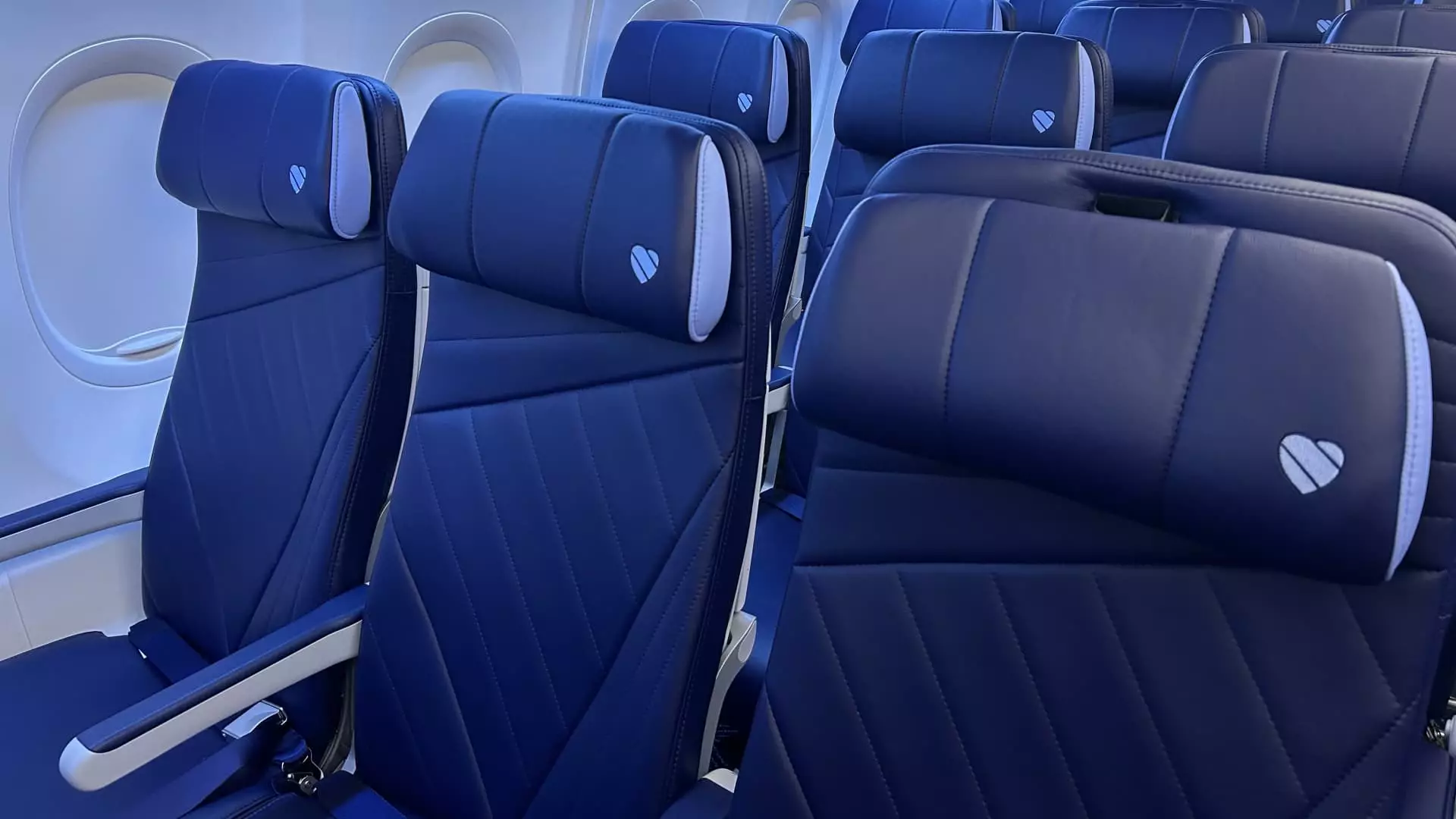For decades, Southwest Airlines built its brand on the principles of simplicity, affordability, and customer-friendly policies like open seating and free checked bags. That model propelled it to become a beloved staple in American air travel, especially for budget-conscious travelers who valued straightforward service. However, recent developments signal a disturbing shift away from these founding values, revealing an industry increasingly dominated by commodification and profit extraction. The introduction of assigned seating—a feature once considered fundamental—is now being monetized in ways that threaten not only consumer fairness but also the very ethos of accessible air travel.
What was once a straightforward transaction—purchase a ticket, select your seat if you want, and fly—has morphed into a complex maze of optional fees and tiered privileges. This evolving model invites scrutiny: is it truly about enhancing customer experience, or is it a calculated effort to squeeze more revenue from travelers who are often at their most vulnerable—families, seniors, and those who cannot afford the luxury of choice? The answer seems clear-cut. Airlines, in their quest for billions in ancillary revenue, are increasingly prioritizing profit margins over transparent, fair pricing.
The Economics of Seat Selection and Its Discontents
The recent rollout of Southwest Airlines’ assigned seating policy underscores the commodification of what was once a free, straightforward part of the flight experience. Customers are presented with a “menu” of seat options, each bearing a price that varies depending on proximity, convenience, and even perceived desirability. The stark reality is that passengers may end up paying hundreds of dollars more for what was previously included in the base fare—adding a deceptive layer to the ticket price that makes it difficult for consumers to gauge the true cost of their journey.
Consider this: a typical family flying between Denver and Orlando may face the choice of paying extra just to sit together or accepting the chaos of open seating. And even within paid options, the differentiation between preferred and extra-legroom seats—each with progressive tariffs—transforms the act of choosing a seat into a high-stakes shopping experience, where dollar signs influence comfort and convenience. This model subtly shifts the power from passengers to airlines, who now profit from the simple act of seating passengers.
Furthermore, the value proposition becomes skewed. For loyal flyers or those with premium credit cards, some fees are waived, giving an uneven playing field. This not only fuels a two-tier experience but also fosters resentment among casual travelers who are less equipped to pay the premium prices. The burden of these fees shapes consumer behavior in ways that encourage unnecessary financial outlay, ultimately distorting the principles of transparency and fairness.
The Broader Implications of Eroding Airline Traditions
This shift in Southwest’s policies exemplifies a broader trend across the airline industry: the relentless pursuit of ancillary revenue at the expense of longstanding customer-centric practices. Open seating, once a hallmark of Southwest’s charm, is gradually being replaced with assigned seats—fueling the narrative that airlines are primarily profit-driven entities rather than service providers. It’s a troubling dilemma: while the airlines boost margins, they do so by complicating the travel experience and exploiting consumer loyalty.
The expansion of baggage fees further exemplifies this profit-first approach. Charging $35 to $45 for checked bags, a practice adopted recently by Southwest, echoes the trends of legacy carriers that have successfully monetized every possible aspect of the flight process. The cumulative effect is a transformation of air travel into a pay-as-you-go system where the base ticket price becomes an entry-level fee, and additional services—comfortable seating, checked luggage, beverage choices—are premium commodities.
This strategy effectively turns flying from a simple, accessible mode of transportation into a luxury product—one that only a privileged few can afford comfortably without concern for rising costs. Behind these policies lie fundamental questions about fairness and the social contract: should air travel remain a right affordable for all, or is it destined to become an elitist service tailored toward those willing to pay extra for comfort?
The Rise of Corporate Interests Over Consumer Rights
Behind the scenes, powerful investment firms and hedge funds see these fee structures as opportunities to generate massive profits—often at the expense of consumer rights. The 2018-2023 period saw airlines rake in billions from seat and baggage fees, revealing a disturbing trend towards profiteering that elevates quarterly earnings over passenger loyalty and well-being.
This approach displaces a more equitable model rooted in transparency and fairness, potentially disenfranchising millions who rely on affordable transportation. As the airline industry undergoes this transformation, it raises critical questions about the long-term sustainability of consumer trust. Will passengers accept this new normal where every convenience comes with a hefty price? Or will this erode the social fabric that once made flying accessible and fair?
The introduction of tiered loyalty programs further entrenches inequality. Top-tier members receive perks like free extra-legroom seats and priority boarding—privileges that others must pay dearly for. This stratification fosters a divide that contradicts the fundamental values of fairness and equal opportunity. It mirrors a broader societal trend of wealth concentration and exclusion, quietly transforming air travel into an exclusive domain for those able to afford it.
In the end, the evolving landscape of airline pricing strategies reveals a stark truth: profitability often triumphs over the foundational principles of consumer fairness. While these changes may appeal to investors, they threaten to diminish the once-cherished idea of flying as an accessible, egalitarian service—a pursuit that, at its core, should serve people, not profit maximization.

